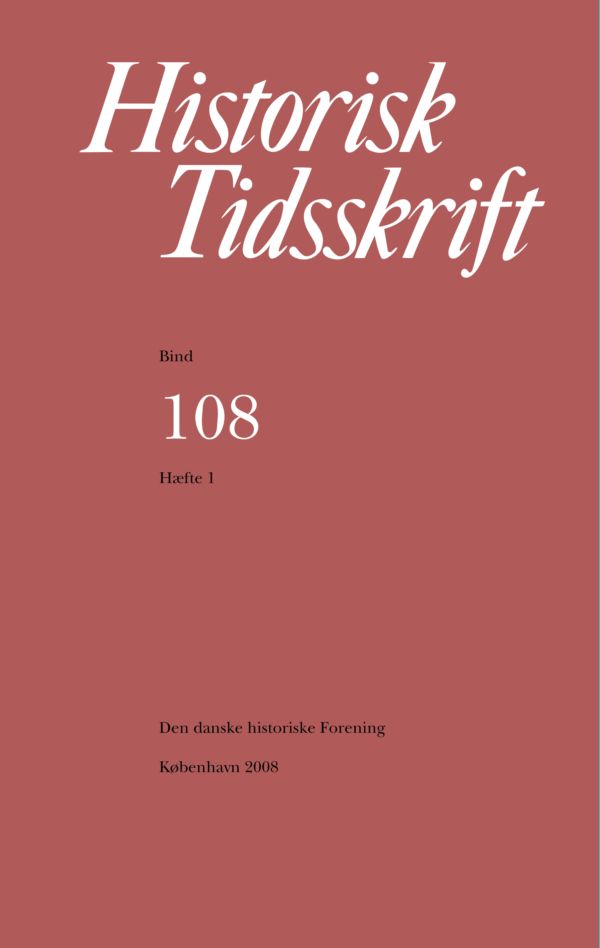Privatiseret udenrigspolitik. Biafrakrigen og Dansk Nødhjælp
Resumé
The Biafra War and Danish Emergency AidDanish humanitarian aid to Biafra during the civil war in Nigeria (1967-1970) posed political and diplomatic challenges. The present study, based on source material in the Danish Foreign Ministry's archives, examines how these were handled.The war between the Federal Government of Nigeria and the separatist Biafra enclave created a major hunger catastrophe that forced its way during the spring of 1968 onto the political agenda in a number of Western countries. The popular mood in Denmark was that something had to be done. In parliament the opposition raised the questions of recognition, UN initiatives, weapon supplies and emergency aid.The government's top priority was humanitarian aid to the Biafran starvation victims, but the matter was in no way as simple as in the case of a natural disaster. The rebellious province was surrounded by Nigerian territory, and after the loss of its last port in May 1968 the federal blockade was effective. The only access was by plane via unauthorized airlifts conducted by the Red Cross and religious NGOs. The Nigerian government persistently claimed that the civil war was an entirely internal matter and considered aid brought in by air as tantamount to interference in its internal affairs, alleging that open space for an airlift would provide cover for rebel traffic. The Danish Ministry of Foreign Affairs managed nevertheless to find a way of bringing in emergency aid. It channelled resources to the airlifts through the Danish NGOs DanChurchAid and Danish Red Cross while taking care not to earmark the funds for this specific purpose. The funds were granted in the form of general financial support to the organisations, which thus functioned as a buffer between the ministry and the controversial airlifts. By using the NGOs to implement it this stratagem may appropriately be called a form of privatized foreign policy.The question of diplomatic recognition of Biafra was one of the political problems raised by the conflict, but it never came to a point, where the government needed to give it serious consideration. The Ministry of Foreign Affairs, on the other hand, went to great lengths in its efforts to have the UN deal seriously with the humanitarian aspects of the Biafra war and to assert itself diplomatically vis-à-vis Nigeria along with the other Nordic countries. The UN effort stranded in the face of opposition from the other African states, where Denmark during these very years was in the process of building a cooperative relationship in providing developmental aid. Moreover, the UN initiative tended to undermine the effort to provide impartial and effective aid, since Nigeria inevitably saw it as an expression of political alignment.The incompatibility of active diplomacy and impartial emergency aid was a new lesson the Ministry of Foreign Affairs was quick to learn and put into practice in its subsequent handling of humanitarian disasters in Third World countries riven by internal strife. This was in evidence already in 1971 during the conflict in East Pakistan, which led to the establishment of Bangladesh as an independent state. In this case Denmark contributed massive emergency aid, while its diplomatic activity remained conspicuously restrained.Translated by Michael WolfeDownloads
Publiceret
Citation/Eksport
Nummer
Sektion
Licens
Ophavsret til bidrag i Historisk Tidsskrift tilhører forfatterne og Den danske historiske Forening som udgiver af Historisk Tidsskrift. For illustrationer gælder den ophavsret, som står anført i billedteksten. Ophavsretslovens almindelige bestemmelser gælder, hvilket vil sige, at ophavsretten gælder i 70 år efter forfatterens død. Bidrag i Historisk Tidsskrift må derfor, med forbehold for en ”moving wall” på tre år, frit downloades, læses, gemmes, anvendes og citeres (med kildeangivelse) i privat og videnskabelig sammenhæng, men de må ikke helt eller delvis genudgives af tredjepart, heller ikke i redigeret form, uden tilladelse fra forfatterne og Den danske historiske Forening. Henvendelse skal i så fald rettes til Historisk Tidsskrifts redaktion på histtid@hum.ku.dk.





